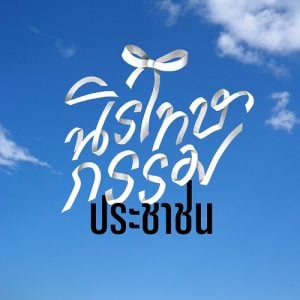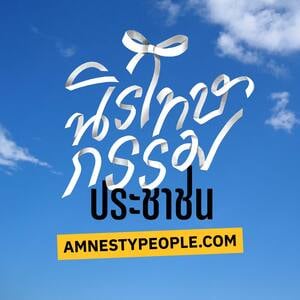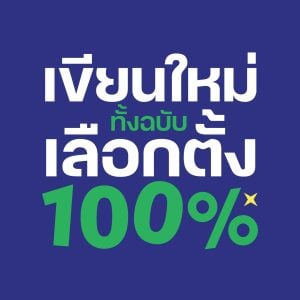*English please scroll down
9 เมษายน 2561 – ดีแทค ยื่นจดหมายแสดงความคิดเห็
นายราจีฟ บาวา รองประธานเจ้าหน้าที่บริหาร กลุ่มกิจการองค์กรและพัฒนาธุรกิ
ความคิดเห็นและข้อเสนอแนะมีประเด็นที่สำคัญ ดังต่อไปนี้
1. ราคาขั้นต่ำของการอนุญาตให้ใช้
บริษัทฯ ขอยืนยันความเห็นเดิมว่าไม่
ทั้งนี้ บริษัทฯ มีความเห็นว่ารัฐบาลหรือหน่
2. ขนาดของคลื่นความถี่ที่จะให้อนุ
บริษัทฯ มีความเห็นว่าการกำหนดขนาดคลื่
3. ข้อกำหนดกรณีผู้เข้าประมูลมี
บริษัทฯ ไม่เห็นด้วยอย่างยิ่งกับเงื่
4. การกำหนดงวดและระยะเวลาการชำระเ
จากการที่ บริษัท แอดวานซ์ ไวร์เลส เน็ทเวอร์ค จำกัด (AWN) และบริษัท ทรู มูฟ เอช ยูนิเวอร์แซล คอมมิวนิเคชั่น จำกัด (TUC) ได้ยื่นเรื่องขอผ่อนผั
บริษัทฯ หวังเป็นอย่างยิ่งว่า กสทช. จะพิจารณาทบทวนร่างประกาศหลั
dtac urges NBTC to revisit auction rules of 1800MHz spectrum to benefit all
April 9, 2018; dtac handed an official letter to the NBTC Office this morning, making a strong request to have the proposed original draft auction rules for 1800MHz spectrum reviewed for the good of the industry, the Thai consumers and the country’s ambition of Thailand 4.0.
Rajiv Bawa, Chief Corporate Affairs and Business Development Officer of Total Access Communication PLC. or dtac said, “DTN would like to draw NBTC’s attention to our proposals as per our referenced letter to NBTC on April 9, 2018. We strongly believe that the proposed original draft auction rules for 1800 MHz spectrum needs substantial improvement if NBTC is to conduct a successful auction and maximize the benefit for industry, consumers and the ambition of Thailand 4.0.”
In this regard, DTN has made proposal as follows:
1. Reserve Price: We maintain our view that the reserve price based on the winning price of the last 1800MHz auction is not a proper practice as it was driven by the bidder who was unable to pay for the license. As such, the proposed reserve price is excessively too high. If spectrum is sold at all at that price level, it will likely cause financial problem for the winner to pay the auction price as it has already happened.
The government should not set reserve prices at levels which are certain to leave spectrum unsold and unused. Prices need to fall to permit the industry to use more frequencies to the benefit of Thai subscribers and society as a whole. Recent mistakes by governments and regulators in India and Bangladesh need not be repeated in Thailand.
2. License Block Size: The proposed three licenses of 2 x15 MHz is not practical taking into account the different demands for spectrum of the potential bidders. The fixed 2x15MHz block size will likely leave spectrum unsold in the auction. The 2×5 MHz block size will offer more flexibility for the bidders to buy the spectrum at the amount best serving their real demands based on their specific spectrum inventory, business plan and financial status. The smaller block size will also incentivize new entrants as the barrier to entry will be less. As the latest wireless technologies are designed to apply for the spectrum of 2×5 MHz for highest efficiency, most countries put forward the auction of 2x5MHz block size; recent examples of this approach include spectrum auctions in Malaysia, Myanmar, Bangladesh, Australia, Germany and the US.
3. N-1 Rule: DTN strongly disagrees with the proposed N-1 rule for the 1800MHz auction. It is widely known that Thailand needs to increase spectrum availability significantly in order to catch up with other countries. Contrary to this notion, the N-1 rule will increase scarcity of spectrum as the number of licenses sold will be less than the number of bidders. Apart from the negative impact on the industry and the country, this is a new rule which has never been applied before in any auction and is considered unfair to the bidders.
4. Payment Terms: Both Tru and AIS have asked NCPO for relief in payment terms two years after the 2015 auctions. This is clear evidence that the financial pressure on the operators is extremely high. NBTC should relook at the payment terms in the upcoming auctions and make sure that the payment terms are established in a rational way.
RELATED POSTS
No related posts
















